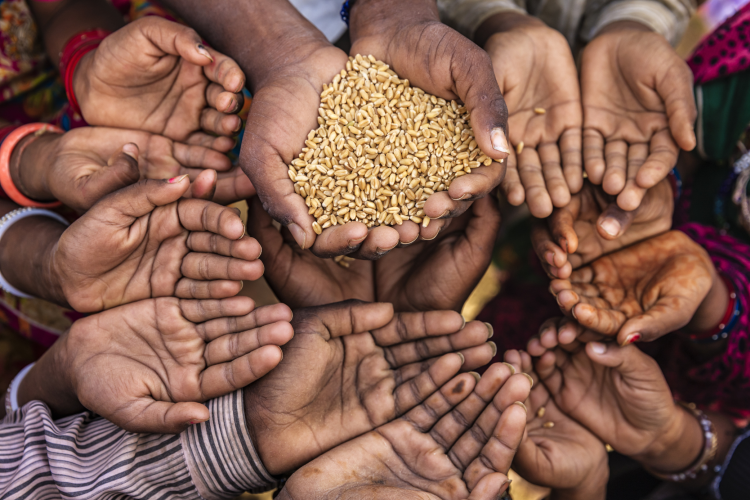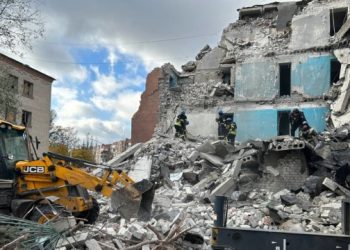Human Lives Human Rights: Since the formation of politics and power struggles in the world, war has been present alongside politics, and it has taken centuries for mankind to realize that peace can also serve their interests, but war is still active in politics. Meanwhile, the consequences of wars are becoming more widespread day by day, but it is no secret that war always has a direct impact on people’s food security.
The impact of the Russia-Ukraine war on food security in the world is very important issue because Russia and Ukraine are both the largest producers and exporters of grain to the world.
Ukraine is the largest producer of corn and canola in the world, and Russia is one of the three main producers of wheat in the world, and this war has caused the two most important countries in the world to distance themselves from the producers of cereals, which means that there is a very serious risk in terms of global food supply.
Euronews recently interviewed Professor Aled Jones, an expert on finance, risk and resource management and Director of the Global Sustainability Institute, explaining more complex aspects of the food crisis following Russia’s invasion of Ukraine.
“Any countries that are reliant on global markets are reliant on these countries and anything that goes wrong in those countries like a drought or famine or war can have a huge effect on how food moves around the system,” Professor Jones, goes on to say.
Now, let us go back to the statistics. Ukraine produces 50% of corn, 20% of barley and canola, 10% of wheat consumed in the world. Most of these products are exported from the southern ports of Ukraine on the Black Sea coast and especially the ports of the strategic city of Mariupol to different parts of the world.
It seems that Russia intends to capture the nerve of the world grain market after taking over the Donbass and then Mariupol, so that in addition to a pivotal presence in the energy and arms markets, it now plays a much more colorful role in the world food market and mediates huge profits.
This issue becomes more critical when we see that in addition to European countries, countries in North Africa and West Asia are also highly dependent on grains exported from Ukraine, Countries such as Egypt and Turkey, which imported than 40% of their grains from Ukraine are now facing a very serious crisis.
In this regard, Executive Director of the World Food Programme, David Beasley in May, urged Putin to reopen Ukraine’s Black Sea ports before global calamity strikes.
The UN official said: “If you have any heart at all for the rest of the world, regardless of how you feel about Ukraine, you need to open up those ports.”
However, the issue of food security and the devastating effects of war on it, is one of the most complex debates and it is not possible to describe all its aspects in this short article, but we will mention two important points here:
First of all, one of the main goals of Russia in this aggression is to dominate the Ukrainian grain export sector, and this means a greater threat to the food security to the world. Second, the experience of fires in Australia or floods in the United States or even the Arab Spring has shown how much such events can cause creeping inflation and rampant food prices in the markets.
Given these points, we have to wait for much harder days, because apparently before the war for water, the war for food is waiting for the people of the world.


















